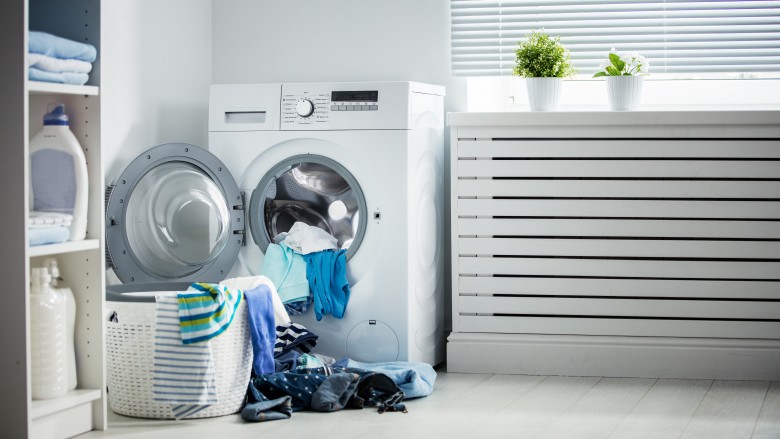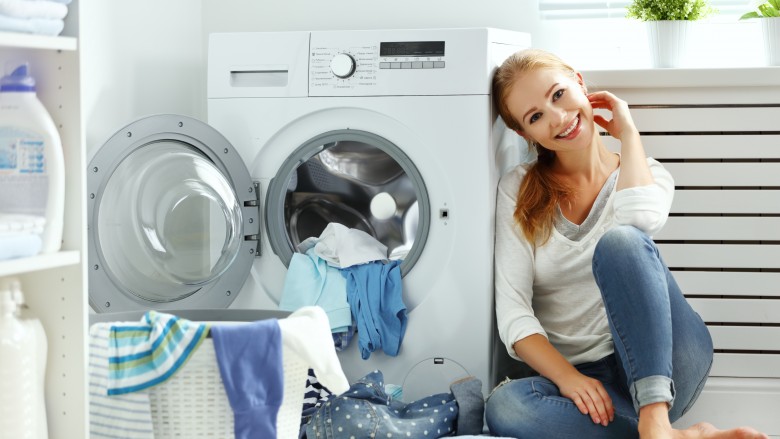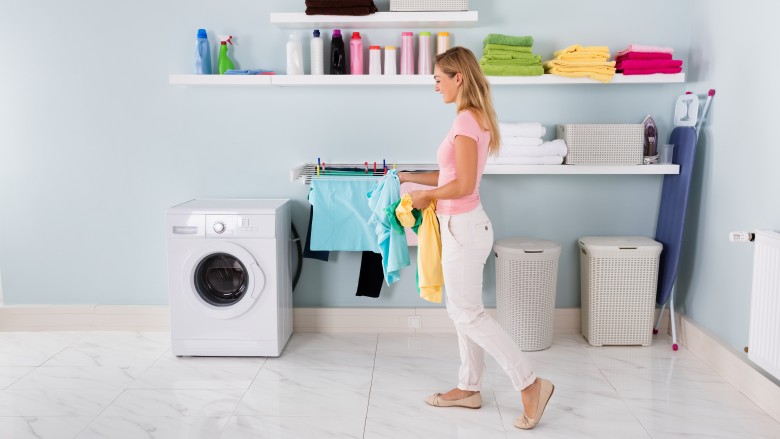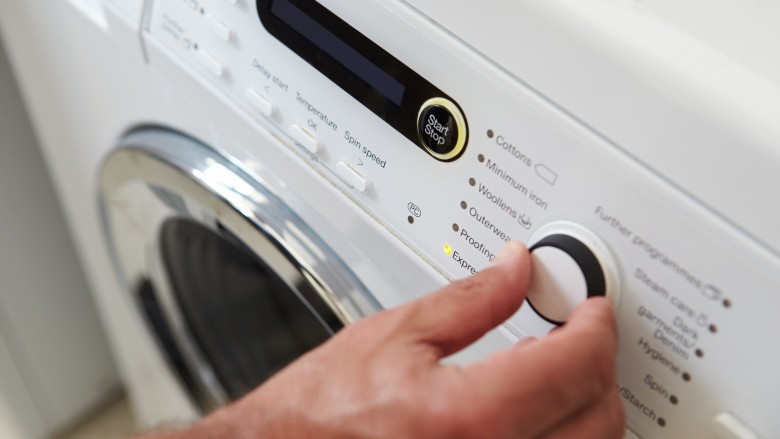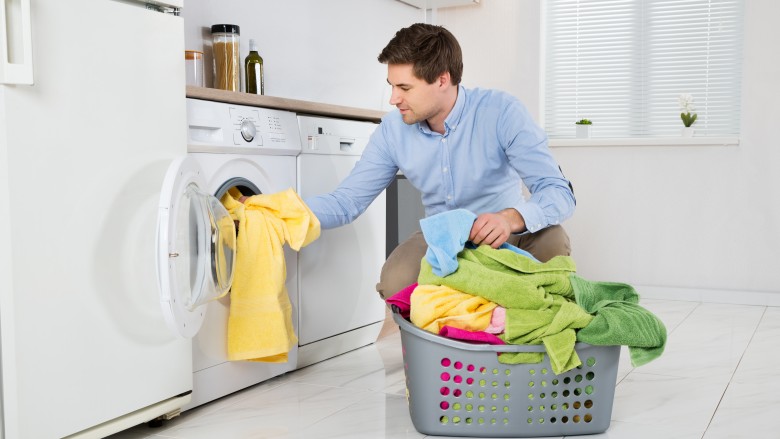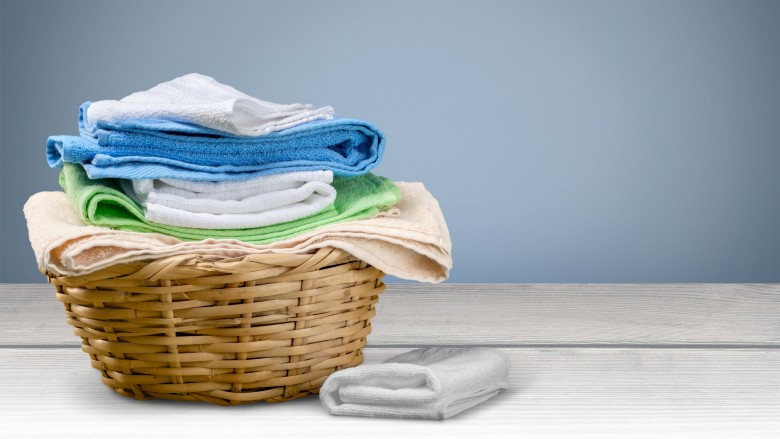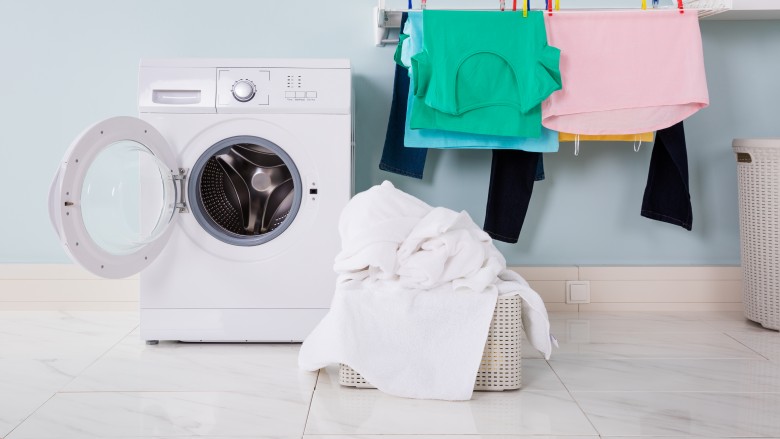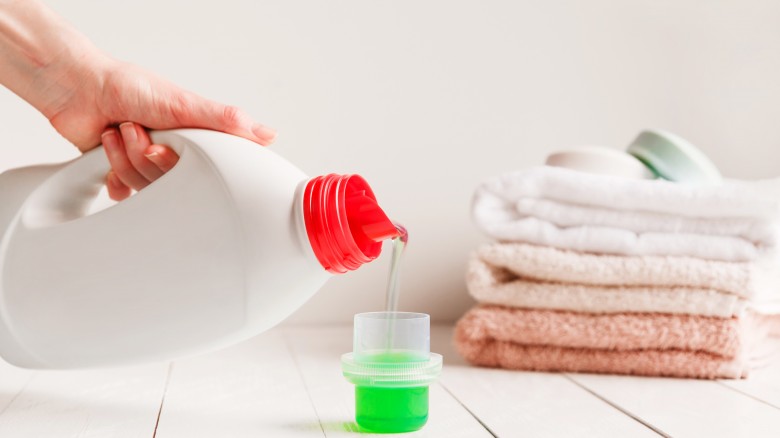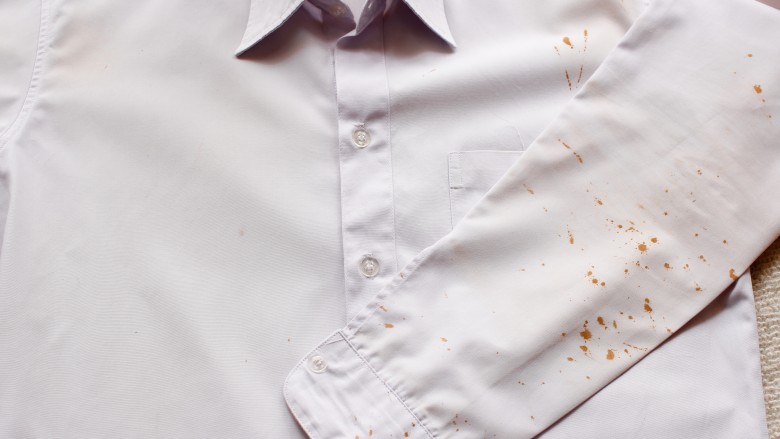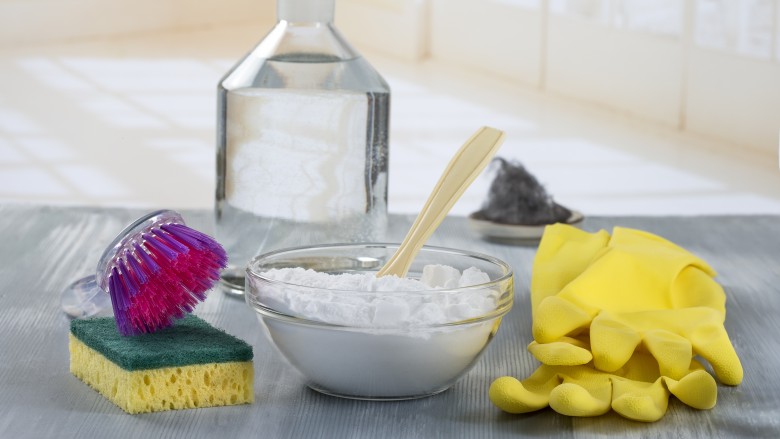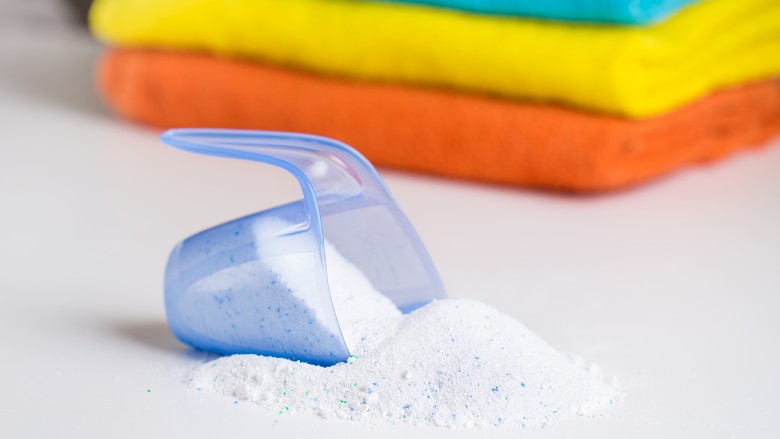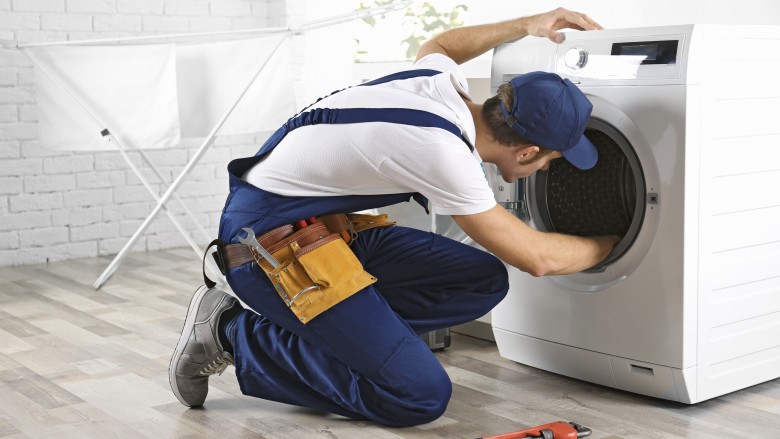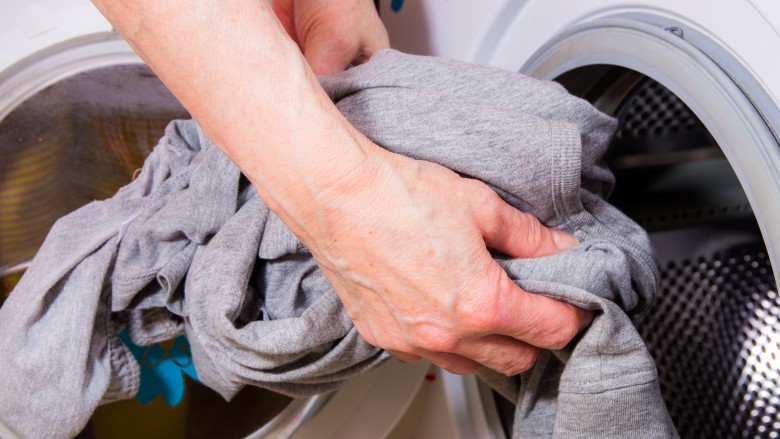How To Get The Most Out Of Your Washing Machine
Adulting is hard sometimes. Not only do you have to figure out home-ownership, taxes, and budgets, but there are also those little things that you forget about. Furnace maintenance and oil changes tend to sneak up on me just when I think I've got it all figured out.
Another one of those little adult things I tend to forget about is taking care of our washing machine. I had never given our laundry room that much consideration, but I'm in there just about every day. With the amount of money that we spent on our washer and dryer, I want to make sure that they last as long as possible. That's why I'm going to start implementing some of these expert tips.
Don't overload your machine
Most of our home washing machines are designed for everyday clothes washing. When we try to jam them full with bulky blankets or beach towels, we can damage the machine.
"Heavy loads, especially with beach towels, can put a strain on your washer," owner of Mr. Appliance, Jim Roark, told me. "Don't wash carpets or rubber mats at home. Even though they will fit in your washer, it will put excess pressure on the motor and cause internal damage. They should always be washed in a commercial-grade machine."
Air it out
After you take your clothes out of your washing machine, you probably close the lid and go about your day. However, the machine itself is still wet on the inside, so if it doesn't have a chance to breathe a little, mildew can form. "Leave the door open when not in use," said Roark. "This will allow moisture out, and help you avoid that musty smell."
Parenting expert and writer at Kars4Kids, Varda Meyers Epstein, agreed. "One thing I always tell people is that when the machine is not in use, the door should be left open to air. This prevents rusting and mildew," she told me. "Another good practice is to use a descaling product every ten washes or so, especially if you live in a hard water area. This will keep your machine from building up mineral deposits that can damage your washer."
Don't just clean your clothes
If your entire washer isn't clean itself, what does that say about your clothes? It's important to really get in there and make sure you've wiped down your entire washing machine to make sure it's not leaving behind any residue on your clean clothes.
"Clean the inside drum weekly with a damp cloth," Roark told me. "This will reduce residue from soap, dirt, grease, and remove any slimy buildup. You can run the machine with white vinegar or lime juice to cut through grease and detergent buildup."
To keep things simple, you can also buy cleaners for your washing machine. "Washer cleaners are now available in the detergent section of most grocery stores," Roark said. "I usually recommended once per month for high efficiency washers."
Clean everything
While it's important to wipe down the inside of your washing machine, you shouldn't stop there. Soils from your fabrics can get caught in the small areas of your washer too, so don't forget the clean everything regularly.
"Clean out the bellows of your front load washer, that rubber gasket between the opening of the washer, and the drum. Detergent, hair, and soils can deposit there and a quick clean up keeps this area fresh," Mallory Richards from Whirlpool's Institute of Home Science told me. "Also clean the inside of the door. Generally the door is glass and the soils that come off of your clothes during wash can leave debris on the window. A good cleaning will leave it sparkling."
Use the right setting
You know all of those setting options at the top of your washing machine? They are there for a reason. I've been guilty of ignoring them in the past, but after having to say goodbye to one of my favorite sweaters, I've turned over a new leaf.
"You may be tempted to throw everything into one load and use the maximum setting to save time," explained Roark. "This method will ultimately damage both your clothing and the machine. Separate delicates from heavily soiled fabrics for the best results."
Also be sure to check the tags on your clothes for any special washing directions.
Don't slam the door
Slamming doors shut is never a good idea. As a teen, it got you grounded. When it comes to your washing machine, it will damage the appliance itself. "Avoid slamming the door or continually dropping the lid," recommended Roark. "To save yourself the cost of a new switch when your washer error code appears, gently close it each time you use it."
Wash smaller loads
I'll admit it. I kind of love stuffing my washing machine full of clothes. With two young kids, it can feel like we're constantly doing laundry, and I like to be efficient. Unfortunately, it turns out my technique is actually doing more harm than good.
"If you put too many items in the machine, there won't be enough space for them to move around in the barrel, thus they won't get as clean as you expect," Harriet Jones, cleaning and maintenance expert for Go Cleaners London, told me. "Also, overloading your washer makes it harder for the detergent to evenly distribute across all items. This means that some stains might not fully come out. Make sure you check manufacturer's notes on maximum load weight and do not exceed them."
Save water
Another small tweak that can help you get the most out of your washing machine is to use the right amount of water. Most washers have an option to choose what size load you're washing. Make sure to pick the right option to avoid using too much water.
"Using too much [water] will hinder the agitation process, which is essential if you want your clothes to come out clean after the wash," Jones told me.
Go easy on the detergent
Now that we're using the right amount of water, be careful about using the right amount of detergent. Rather than just eyeballing it, make sure to measure your detergent based on how much you're washing.
"Always use the proper amount of detergent for the load size you're using," explained Roark. "Using excess detergent won't get your clothes cleaner, but instead can actually damage your clothes, water pipes, and washer motor."
Using too much detergent could actually leave your clothes dirtier too. "Using more than you need will not make your clothes cleaner, but the opposite," agreed Jones. "They will become grayish and dull, because the detergent redeposits soil onto the fibers."
Treat stains first
One tip that almost all of the experts mentioned to me was that our washing machines are not miracle workers. You can't spill red wine on your white sweater, then toss it in the wash and expect it to come out looking like new. Tough stains need to be treated before you wash your clothes.
"When one of your items gets stained, you have to treat the stained area as soon as possible. If you let it dry, the stain could become permanent, and your washer won't help you," Jones told me. "When an accident happens, first soak the cloth in a bucket full of a solution made of water and a few drops of detergent, then treat the stain, and finally wash in the machine."
Clean the filters
We know that our dryer won't work unless we regularly clean out the lint filter. Once my clothes start coming out damp, I know it's been awhile since I checked that filter. However, I never thought about the lint filter in my washing machine.
"Some washing machines have a lint filter, so if yours has one, you should clean it regularly," said Jones. "This will prevent bad odors and ensure better water flow inside the machine."
Create a cleaning plan
Because keeping your washing machine clean impacts how long it will last, it's best to create a schedule for yourself so you don't forget. Your schedule and cleaning process will depend on the type of washer you have.
"Owners of top loading washers can clean them by running a cycle with hot water and one cup of distilled white vinegar," said Jones. "Doing so will freshen the machine and eliminate any residue left from the detergent."
If your washing machine loads from the front, it be at more risk for developing mildew. "Washing machines which are loaded from the front side often smell bad because of mildew or detergent build-up," explained Jones. "To eliminate both, along with the commercial cleaners, you can use one cup of chlorine bleach and run an empty cycle."
Mix your clothes with vinegar
One of the reasons why I am always nervous to wash new clothes is color fading. It is so disheartening to find the perfect black sweater, only to see it start fading after your first wear. In order to get the most out of your washing machine and your gorgeous clothes, try soaking new clothes before washing them.
"The good old white vinegar is great for protecting clothes from color fading. You just have to pour in half a cup during the rinse cycle, and it will not only preserve the colors, but also freshen up the laundry and make it softer," Lauren Haynes, home cleaning expert at Star Domestic Cleaners, told me. "You can also use white vinegar before the first washing of darker clothes. Soak them for 30 minutes in a solution of water mixed with half a cup of white vinegar and two tablespoons of salt. This way you will definitely make their colors last longer."
Start with baking soda
To get the cleanest smelling clothes, try adding baking soda to your washing machine. "If your laundry happens to be more smelly than the usual, don't worry. First let all the smelly items soak for one to two hours in a solution made up of one gallon of water and half a cup of baking soda," recommended Haynes. "Then, put them in the washing machine, and during the rinse cycle, add half a cup of white vinegar. At the end, all the odors will be gone and your clothes will be fresh and clean again."
Try a powder detergent
In addition to using the right amount of detergent, make sure you're using the best detergent for your machine. "Powder is more efficient than liquid detergents and tends to be cheaper per load than liquids," Sandi Schwartz, freelance writer and researcher, wrote in her blog. "Some studies show that powder performs better than liquids since they have a better bleaching technology than liquids." If you've always used liquid detergent, try switching to powder and see if it makes a difference.
Change out the hose
Once you've finished washing your clothes, it's a good idea to turn off the water to your machine to prevent any backup. "If you can't turn off the water to your machine when you've finished doing laundry, the most important thing you can do to prevent a burst hose is replace standard rubber ones with braided ones," Carolyn Forte, director of the Good Housekeeping Research Institute Home Appliances and Cleaning Products department, told Good Housekeeping. "Braided hoses are more durable and don't dry out, crack, and split, like rubber hoses can. It's an easy and smart fix."
Don't forget the dryer
While it's important to take proper care of your washing machine, make sure you're not forgetting the dryer too. Start by making sure the ventilation system is working. "Any time is an excellent time to check out the proper ventilation of your dryer," Richards told me. "Start by following the length of the duct work. Check for gaps or breaks in the segment connections."
Once you've made sure that all of the pieces are intact, clean them out to make sure your clothes are staying clean and dry in there. "Next, clean out the duct work if you have easy access to it. Your local hardware store has some tools that can make the job easier, but if need be, you can contact product service," explained Richards. "Lastly, go outside and check the vent to make sure it is clear of obstruction. In the winter it can be obstructed by snow and in the fall leaves can easily obstruct."

